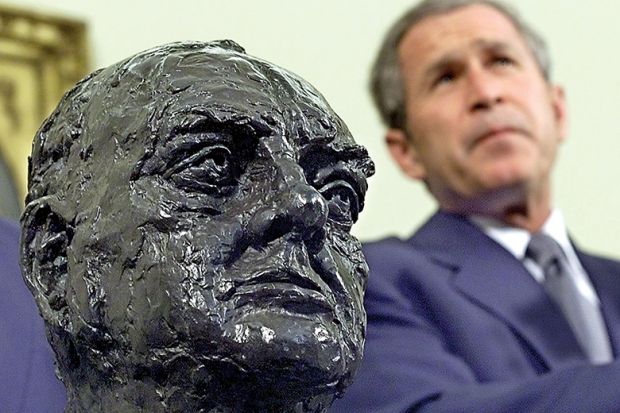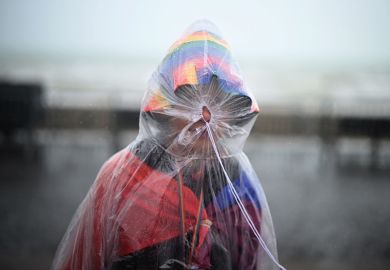Politicians looking for a discipline that makes an easy target when questions of value for money and graduate employability are looming large do not take long to zoom in on history – and medieval history in particular.
Robert Halfon, the chair of the UK’s Commons Education Committee, was the latest parliamentarian to take aim, telling The Times last month that government funding should be directed to disciplines where there are skills shortages, such as “healthcare, coding, construction, engineering, [and] digital”.
“If someone wants to do medieval history that’s fine,” the MP said. “You still take out your loan and pay it. But all the incentives from government and so on should go to areas the country needs and will bring it most benefit.”
This might seem a bit rich coming from someone with a politics degree – and it’s worth adding that three of the UK’s current Cabinet have history degrees, including one, Cabinet Office minister David Lidington, who completed a doctorate on Tudor penal statutes.
But it is clear that history is a discipline facing a challenging future when policymakers around the world are increasingly obsessed with science, technology and engineering subjects.
And these concerns are not confined to politicians: enrolments on history programmes as a proportion of total student intake are on a downward trend in both the US and the UK, and history departments have arguably failed to capitalise on popular interest in the past, which – if the recent success of blockbuster history books and TV shows such as Who Do You Think You Are? are anything to go by – is greater than ever before.
Having an undergraduate degree in history and a master’s in medieval studies has never done me any harm, even though now, more than a decade on, I’m pretty rusty at explaining to a non-historian the value of my 20,000-word dissertation on the fate of the senatorial class in 6th-century Italy.
And for much of my time at university, I had two, maybe four, hours of contact time each week. I was fine with this – what were lecturers supposed to do, stand over us while we read in the library? – but today’s undergraduates paying more than £9,000 a year might take a different view.
Nevertheless, the fate of history in our universities is something that should concern us all, as the five historians from the leading anglophone sectors who contribute to our cover feature this week amply demonstrate.
At a time when the past is more contested than ever before – to take two examples cited in the feature, over the role of Civil War commemoration in the US, or the place of the Crusaders in a supposedly “glorious white European past” – society desperately needs people, inside the academy and out in the wider world, who understand the complexity of our heritage and can cut through the more outlandish abuses of it.
And with our societies facing historically familiar challenges such as populism, nationalism and ever deeper partisanship, we are in grave need of strong voices able to bring to the fore the often dark lessons of the past.
Although the fate of history should not rely on utilitarian arguments alone, the employability arguments can be countered, too. In the UK labour market, outcomes for history students hold up well, and only last week a US report found that humanities graduates, on the whole, land rewarding jobs and are happy with them.
Moreover, the broad transferable skills that a history degree confers – critical thinking, communication, the ability to distil information and form an argument, to name just a few – are likely to prove highly valuable in a jobs market that is more uncertain than ever before. And the intellectual rigour and mental agility instilled by a study of history will be a real asset to the workforce as we have no idea what the jobs that we are training today’s graduates for will actually look like.
This is not to say that history and historians should not work to address the criticisms being directed their way. As the feature shows, these include a continuing preoccupation with the Western, white past; the challenging employment environment for junior researchers; and a continuing reluctance among some historians to engage with anyone outside their scholarly circle.
There are big challenges facing history in the academy. But today’s urgent political and social issues make it even more important that the study of the past should flourish.
Register to continue
Why register?
- Registration is free and only takes a moment
- Once registered, you can read 3 articles a month
- Sign up for our newsletter
Subscribe
Or subscribe for unlimited access to:
- Unlimited access to news, views, insights & reviews
- Digital editions
- Digital access to THE’s university and college rankings analysis
Already registered or a current subscriber? Login





